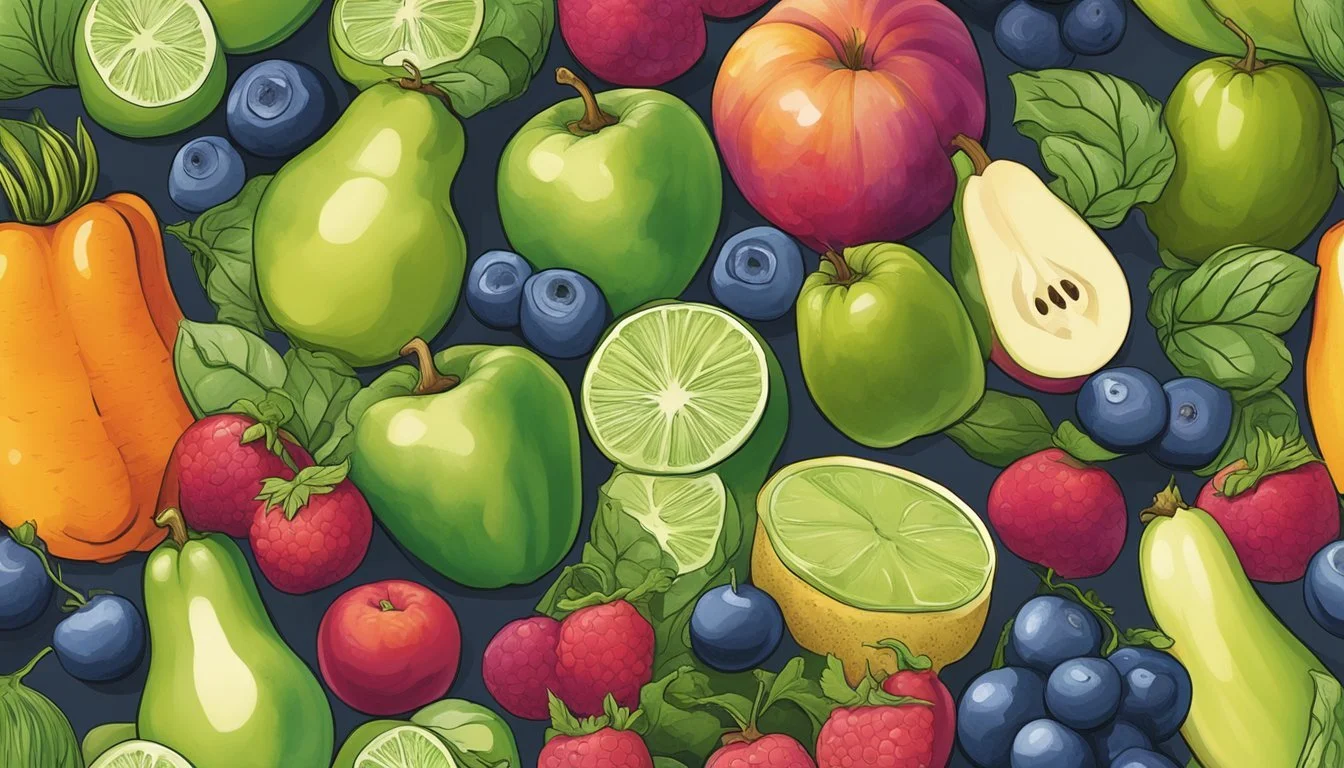Discover Apeel
The Latest Threat to Clean Eating for Carnivores Explained
Apeel is emerging as a controversial topic among health-conscious communities, especially those who adhere to a carnivorous lifestyle. Developed to extend the shelf life of fruits and vegetables, Apeel uses plant-based additives to create a protective coating. This process aims to reduce water loss and oxidation, keeping produce fresh for longer periods. Yet, many advocates of clean eating and carnivore diets are wary of these new substances.
For carnivores committed to eating only animal products, the introduction of Apeel represents a potential threat to the purity of their diet. While Apeel claims to be plant-based and edible, clean eating proponents argue that any form of chemical preservation could conflict with their dietary principles. The concerns focus on whether chemicals in Apeel might introduce unwanted side effects or toxins.
The debate around Apeel and its implications for clean eating shows the growing complexities in managing diet and health. As people become more attentive to what they consume, the introduction of new food technologies can lead to heightened scrutiny and debate. This topic invites further exploration into how such developments can coexist with lifestyle choices dedicated to purity and simplicity in diet.
Apeel: What Is It?
Apeel is a plant-based solution developed by Apeel Sciences. It aims to extend the shelf life of fruits and vegetables. This innovation is designed to reduce food spoilage and waste.
The key feature of Apeel is its coating. This coating is made from plant lipids and polyphenols. These are naturally found in various fruits and vegetables. The coating acts as a barrier to moisture and oxygen.
Apeel is often applied to produce to create an extra layer of protection. This protection helps retain moisture and reduces oxidation. By doing so, Apeel keeps produce fresh for a longer period without the need for plastic packaging.
Benefits:
Extends the freshness of produce.
Reduces food waste.
Decreases the need for single-use plastics.
Key Components:
Plant lipids: Provide the primary barrier.
Polyphenols: Work as antioxidants to reduce oxidation.
According to regulatory bodies like the USDA and FDA, Apeel is recognized as safe for consumption. Despite some concerns raised on social media, scientific assessments have not found significant health risks associated with its use.
Apeel's impact extends to reducing environmental waste by diminishing the dependency on plastic wraps. For instance, the plastic wrap around an English cucumber can be equated to "five plastic straws," which Apeel can eliminate.
This innovative solution appears to be a promising step towards more sustainable food preservation.
Impact on Carnivore Diet
The introduction of Apeel, a product designed to extend the shelf life of fruits and vegetables, has raised concerns within the carnivore diet community about potential impacts on their clean eating principles and health.
Nutritional Considerations
The carnivore diet consists solely of animal products like meat, fish, and poultry, emphasizing nutrient-dense foods rich in protein and fats. Unlike plant-based or omnivorous diets, this regime excludes fruits, grains, and vegetables. With Apeel-treated produce potentially entering the food chain indirectly through cross-contamination or mixed food environments, there is concern about unintended intake of non-carnivore foods.
Nutrients such as protein and fats from red meat and fish are crucial for individuals following this diet. Any unintentional consumption of treated fruits and vegetables could potentially alter nutrient intake, challenging the strict dietary adherence many strive for.
Clean Eating Principles
Clean eating for those on the carnivore diet means consuming unprocessed, grass-fed, or wild-caught animal products, free from additives and chemicals. The concern over Apeel stems from its use of plant-derived substances to coat produce. This raises alarms over the potential introduction of unwanted plant compounds into the diet.
While the intention behind Apeel is to reduce food waste and maintain freshness of plant-based foods, for those on the carnivore diet, the priority is purity in meat consumption. They aim to avoid preservatives, chemicals, and additives to maintain the regimen's integrity.
Possible Health Implications
Health benefits touted by the carnivore diet include weight loss, improved mental health, and reduced inflammation. Yet, inadvertent exposure to Apeel-treated produce might affect individuals with severe sensitivities or specific health conditions.
Issues such as chronic inflammation, autoimmune diseases, and digestive disorders may be aggravated by exposure to non-animal products. Their immune system response to non-carnivore substances could negate the perceived benefits of an all-meat diet, leading to increased cholesterol levels or other health complications associated with chemical additives.
By maintaining a diet free from plant-based substrates, carnivores aim to optimize their health and alleviate chronic health issues. Therefore, the potential introduction of Apeel into their food supply remains a contentious issue that could undermine these objectives.
Comparing Diets
The carnivore diet and vegan diets represent two extremes, each with unique benefits and challenges. Comparing them can offer insights into their impacts on chronic diseases, weight management, and nutrient intake.
Carnivore vs. Vegan Diets
The carnivore diet focuses exclusively on animal products, providing high levels of protein and fats, while eliminating carbohydrates entirely. Common foods include beef, fish, eggs, and organ meats. Proponents argue this diet reduces inflammation and improves overall health due to its nutrient-dense nature.
In contrast, the vegan diet is a plant-based diet excluding all animal products. It emphasizes fruits, vegetables, grains, and legumes, high in fiber, carbohydrates, and antioxidants. Vegans often consume more phytonutrients, which can help combat various diseases.
Effects on Chronic Diseases
Both diets claim to offer benefits for chronic diseases. The carnivore diet has shown promise in reversing or improving conditions such as diabetes, obesity, and autoimmune disorders. High protein and fat content can stabilize blood sugar levels and improve mental clarity.
The vegan diet, rich in plant fiber and antioxidants, has been linked to lower risks of heart disease and certain cancers. Its high fiber content helps with digestive health and may reduce cancer risk by promoting healthy gut bacteria.
Weight Management
The carnivore diet's low-carb approach often results in rapid weight loss due to ketosis, where the body burns fat for fuel. Individuals may find it easier to manage cravings and reduce calorie intake, eating once or twice a day without snacks.
Vegan diets can also support weight loss due to their high-fiber, low-calorie foods. The bulk of plant-based foods makes it easy to feel full while consuming fewer calories, helping maintain a healthy weight without feeling restricted.
Each diet has its unique approach to protein, fats, and carbohydrates, impacting health in different ways. Choosing the right one depends on personal health goals and lifestyle preferences.
Environmental and Ethical Considerations
The environmental and ethical aspects of Apeel's impact on eating habits are multifaceted. They range from agricultural practices used to produce food to the effects on wildlife.
Agricultural Practices
Modern agriculture significantly affects the environment. Crop production requires substantial water resources, leading to water scarcity in regions like Africa and Asia. The overuse of fertilizers and pesticides can contaminate soil and water, harming local ecosystems.
Livestock farming also poses environmental challenges. It contributes to deforestation, greenhouse gas emissions, and excessive water use. Sustainable farming practices, including integrating grains and reducing water consumption, can mitigate these impacts. Environmental responsibility entails adopting agricultural methods that balance productivity with ecological health.
Wildlife Effects
Apeel's influence extends to wildlife, affecting habitats and animal populations. Deforestation for agricultural expansion disrupts ecosystems, pushing wildlife like grizzly bears and fish out of their natural habitats. The displacement of wildlife can lead to conflicts with human activities and reduce biodiversity.
Sustainable agriculture practices are crucial to preserving wildlife habitats. Reducing the use of land for livestock and promoting conservation efforts can help protect species and maintain ecological balance. Ethical considerations involve ensuring that farming practices do not harm wildlife and contribute to the broader goal of environmental sustainability.
Social and Cultural Aspects
The emergence of Apeel in the context of clean eating raises significant concerns tied to current dietary trends and the family and community dynamics affected by these trends. These elements are crucial for understanding the broader impact of this development.
Dietary Trends
In recent years, dietary trends have significantly shifted toward more health-conscious choices. Movements such as the carnivore diet, popularized by figures like Shawn Baker, and veganism highlight the increasing desire to emphasize nutrient-dense, unprocessed foods. With Apeel’s controversial use, containing substances like lead and arsenic, consumers question the alignment of such products with their clean eating principles.
Clean eating often involves avoiding chemicals and preservatives, making additives in Apeel a point of contention. Families dedicated to these diets are likely to scrutinize the intensity of product labeling and transparency. They demand products that match their commitment to healthy and clean eating lifestyles.
Family and Community Effects
Family and community dynamics play a significant role in dietary choices. When families adopt strict eating guidelines, they influence their broader community norms and expectations. Communities focused on clean eating might be wary of adopting Apeel-covered produce, fearing potential health risks despite regulatory safety claims.
These decisions can create divisions or foster solidarity within family units and community groups. Parents particularly scrutinize food products for their children's health, emphasizing the need for clear and trustworthy information. Community leaders might organize educational sessions or group discussions to understand the implications of such products fully, ensuring informed choices are made.
Practical Guidance
For those looking to transition to a strict carnivore diet, understanding the nuances of grocery shopping, food preparation, and maintaining balanced nutrition is essential. This guidance provides clear, actionable advice to help make the journey smoother and healthier.
Transitioning to a Carnivore Diet
Switching to a carnivore diet, which includes only animal products like meat, eggs, and dairy, can be challenging. Start by eliminating all plant-based foods. Gradual reduction of carbohydrates over a few weeks can help minimize withdrawal symptoms.
Monitor your body's response. Some may experience initial digestive discomfort. Hydration and adequate salt intake can mitigate side effects. Daily meals should focus on high-quality protein sources such as beef, chicken, and fish, complemented with nutrient-rich organ meats.
Grocery Shopping Tips
Select high-quality animal products for a healthy carnivore diet. Prioritize grass-fed and pasture-raised meats. Farmers' markets are excellent places to find fresh, locally-sourced products. Look for whole cuts of meat like steaks, chicken thighs, and pork chops.
When purchasing eggs and dairy, choose organic and free-range options. Keep an eye out for sales on bulk meat purchases to save money. Stock up on essentials such as butter, lard, and tallow for cooking. Preparing a list before shopping can ensure you stay focused on animal-based items.
Shopping for tallow online is a smart way to make your purchase!
Food Preparation and Safety
Proper food preparation and safety are crucial when handling raw meat. Invest in a reliable thermometer to ensure meats reach safe internal temperatures. For beef, medium-rare to medium is often preferred for flavor and tenderness.
Store raw meats separately from other foods to prevent cross-contamination. Use different cutting boards and utensils for different types of meat. Cook with fats like butter, ghee, or animal lard for added flavor and nutrients. Regularly clean your cooking area to maintain hygiene.
I always like to buy ghee and lard online because it’s so convenient!
Maintaining a Balanced Diet
Even on a strict carnivore diet, balance is key. Include a variety of meats, fish, and organ meats to obtain necessary nutrients like vitamin B12, iron, and zinc. Egg consumption provides additional protein and fats.
Dairy products such as cheese and cream can add fat and calories. Monitor your intake of these to avoid digestive issues. Pay attention to your body's signals and adjust meal choices accordingly. For those concerned about fiber, animal products can support gut health through different mechanisms.
This blend of practices can help maintain a healthy and sustainable carnivore diet.
Conclusion
Apeel represents a new challenge for those committed to the carnivore diet. This diet focuses exclusively on meat and animal products. Apeel is a plant-based coating applied to fruits and vegetables to increase their shelf life. Though beneficial for reducing food waste, it might conflict with the principles of clean eating that many carnivores uphold.
Those on the carnivore diet prioritize consuming only animal-derived foods. Sustainable choices are essential, but they often involve different strategies compared to plant-based solutions like Apeel. People following the carnivore diet need to clearly differentiate between their dietary choices and general sustainability efforts.
The health consequences of the carnivore diet are widely debated. Some studies and personal accounts highlight improvements in conditions like diabetes, obesity, and autoimmune diseases. Including products like Apeel-treated fruits may introduce elements outside the strict carnivore guidelines, potentially affecting these health outcomes.
In summary, while Apeel introduces innovative solutions for sustainability in the food industry, it presents a unique challenge for adherents of the carnivore diet who aim to maintain a strict regimen. Finding a balance between sustainable practices and dietary restrictions requires careful consideration for those dedicated to this way of eating.












